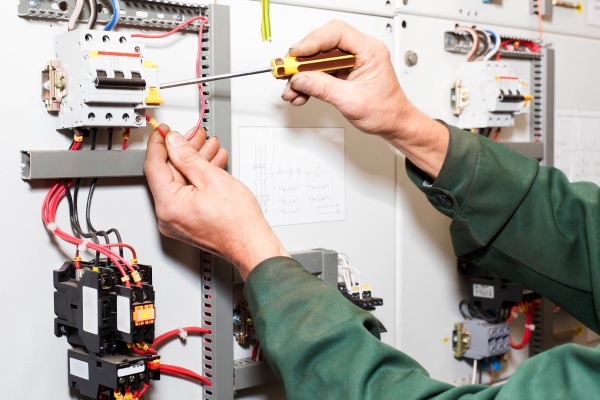Electrical Hand Tool Safety

Employees using electric tools must be aware of several dangers; the most serious is the possibility of electrocution.
Among the chief hazards of electric-powered tools are burns and slight shocks which can lead to injuries or even heart failure. Under certain conditions, even a small amount of current can result in fibrillation of the heart and eventual death. A shock also can cause the user to fall off a ladder or other elevated work surface.
To protect the user from shock, tools must either have a three-wire cord with ground and be grounded, be double insulated, or be powered by a low-voltage isolation transformer. Three-wire cords contain two current-carrying conductors and a grounding conductor. One end of the grounding conductor connects to the tool's metal housing. The other end is grounded through a prong on the plug. Anytime an adapter is used to accommodate a two-hole receptacle, the adapter wire must be attached to a known ground. The third prong should never be removed from the plug.
Double insulation is more convenient. The user and the tools are protected in two ways: by normal insulation on the wires inside, and by a housing that cannot conduct electricity to the operator in the event of a malfunction.
These general practices should be followed when using electric tools:
- Electric tools should be operated within their design limitations.
- Gloves and safety footwear are recommended during use of electric tools.
- When not in use, tools should be stored in a dry place.
- Electric tools should not be used in damp or wet locations.
- Work areas should be well lighted.